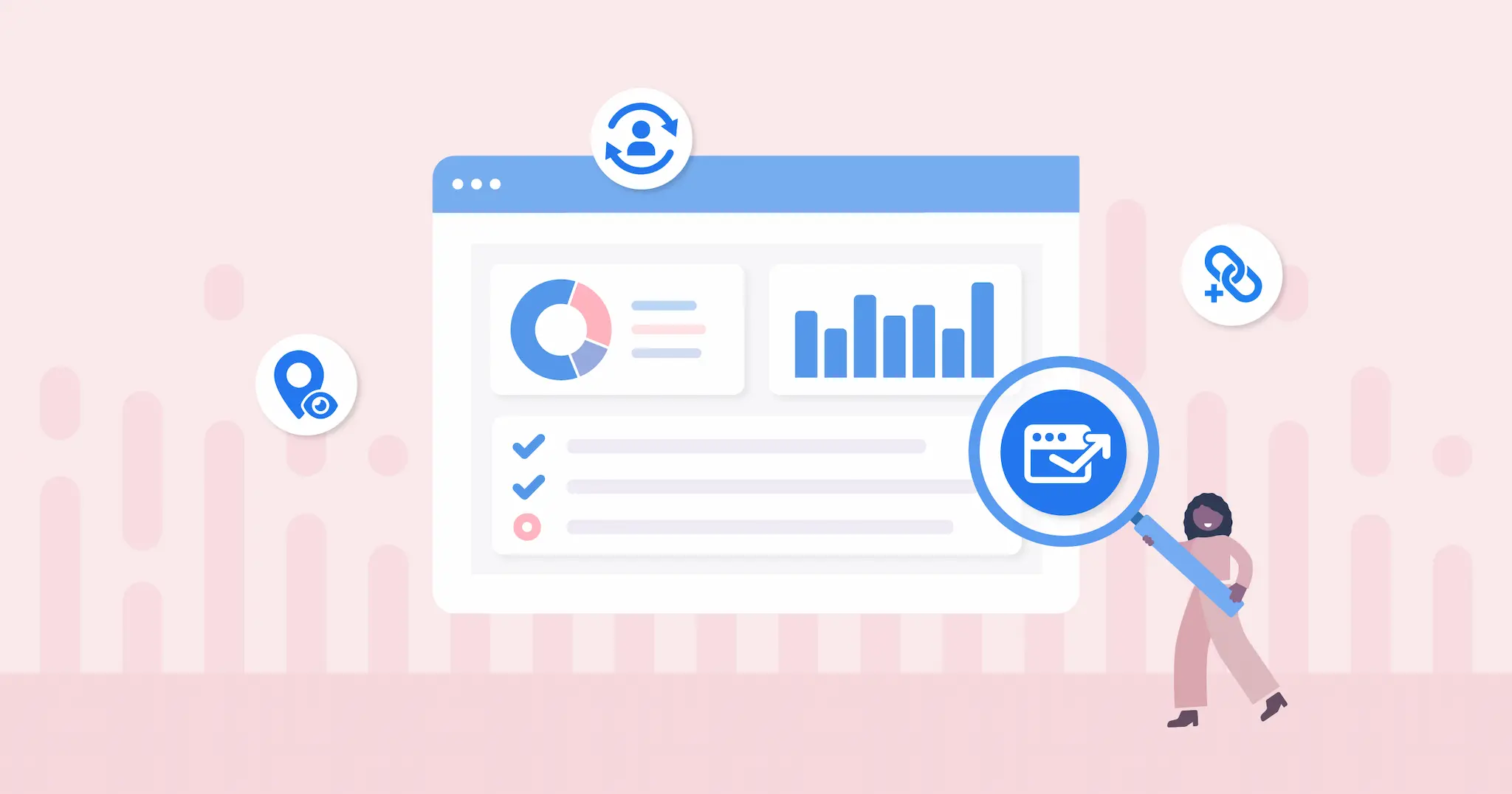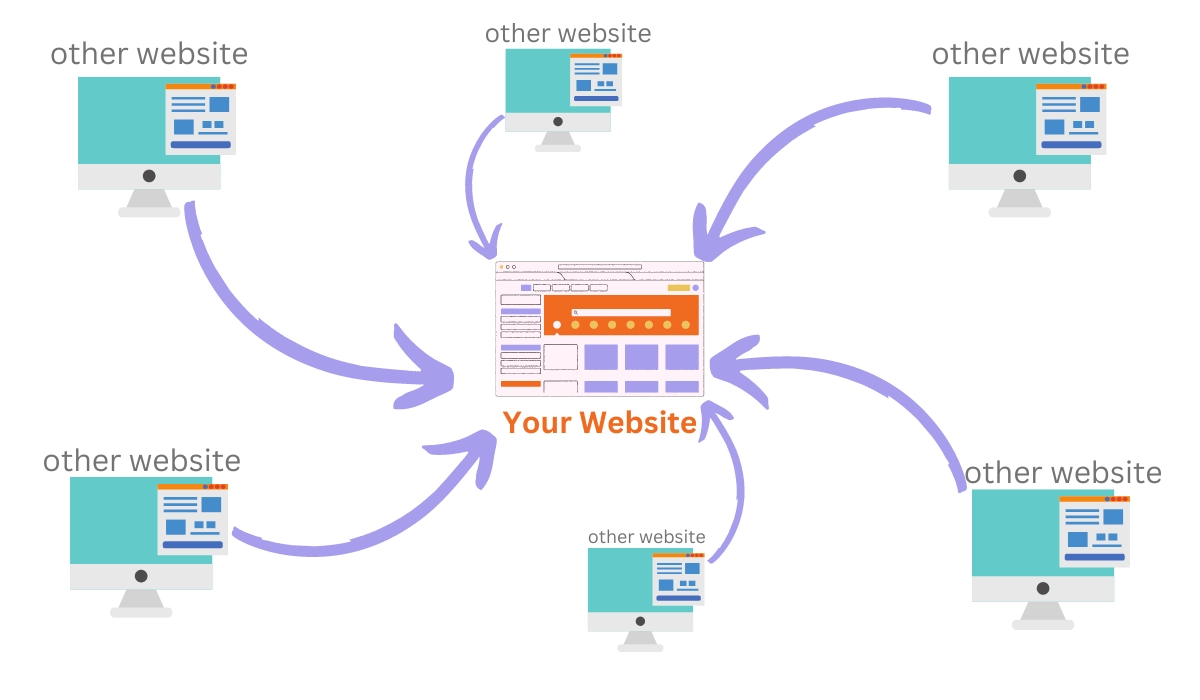As a SaaS or any other form of company, it is important to get more people visiting your website without spending a ton on ads.
Boosting your site’s link popularity is a great way to move up in search results and catch the eye of potential customers.
In this guide, we’ll break down what link popularity is, why it matters, different types, and some examples to help improve your SaaS website’s SEO.
What is Link Popularity?

Link popularity refers to the number and quality of inbound links (backlinks) that a website or web page receives from other websites. Search engines like Google view these links as endorsements of your content’s value and authority. The more high-quality backlinks your site has, the more likely it is to rank higher in search engine results pages (SERPs).
Why is Link Popularity Important?

Link popularity is an important part of SEO which are as follows:
- Search Engine Trust: When reputable and authoritative websites link to your content, it signals to search engines that your site is trustworthy and valuable. This trust factor plays a significant role in determining your site’s rankings.
- Improved Rankings: Websites with strong link profiles generally appear higher in SERPs, leading to increased visibility and organic traffic. Google’s algorithms consider the quality and quantity of links pointing to your site when determining rankings.
- Traffic Generation: Links can drive direct referral traffic to your site. If a user clicks on a link from another site and lands on your page, you have the opportunity to convert them into a customer or loyal reader.
- Crawlability: Search engine crawlers discover new pages by following links. Having a strong network of backlinks helps these crawlers find and index your site’s content more efficiently.
- Anchor Text Optimization: The anchor text used in backlinks provides search engines with context about the linked page’s content. Optimizing anchor text with relevant keywords can positively impact your rankings for those terms.
Common Link Popularity Metrics in Search Engine Optimization (SEO)

Link popularity metrics are very important in SEO. They include the number of backlinks, quality links, variety in anchor text, and the total number of links. Search engines check both the quality and the number of links to decide how strong a site is.
- DR & UR by Ahrefs: Ahrefs provides Domain Rating (DR) and URL Rating (UR) metrics, which measure the strength of a website’s or web page’s backlink profile on a scale from 0 to 100.
- DA & PA by Moz: Moz’s Domain Authority (DA) and Page Authority (PA) metrics predict how well a website or web page will rank in search results based on its link profile.
- AS by Semrush: Semrush’s Authority Score (AS) evaluates the overall quality and SEO performance of a domain or webpage.
- CF & TF by Majestic: Majestic’s Citation Flow (CF) and Trust Flow (TF) metrics assess the link equity and trustworthiness of a website based on its backlink profile.
Factors That Influence Site’s Link Popularity

Search engines look at different elements to judge how trustworthy and valuable a website’s backlinks are. Knowing these factors is important for creating a strong link-building plan. This plan should work well, even when search engines change their algorithms.
- Link Quality: Backlinks from trustworthy, authoritative websites in your industry are considered high-quality and carry more weight than spammy or low-quality links.
- Link Attribute: “Dofollow” links pass link equity and are more valuable for link popularity than “nofollow” links, which do not pass authority.
- Link Quantity: While quality is important, having a higher number of backlinks from diverse sources can also positively impact link popularity.
- Link Relevance: Links from websites relevant to your niche or with similar content are more valuable than those from unrelated sources.
- Link Placement: Links placed within the main content of a page are generally more impactful than those in footers or sidebars.
- Anchor Text: Using relevant, descriptive anchor text helps search engines understand the context and topic of the linked page.
Types Of Links And Their Impact
- Natural Links: These are organically earned links from other websites that find your content valuable and choose to link to it. Natural links are the most desirable and carry the most weight for link popularity.
- Manual Links: These are links acquired through deliberate link-building efforts, such as guest blogging, broken link building, or outreach. While effective, manual links should be pursued with caution to avoid unnatural linking patterns.
- Self-Created Links: These are links created by the website owner, such as in user profiles, forum signatures, or blog comments. Self-created links are generally less valuable and may be seen as spammy if overused.
How to Increase Link Popularity?

To make your website more popular, you need to have a smart plan. This plan should focus on making real connections and creating valuable content that people want to share and link to. Using different link-building methods can help you get good backlinks.
It is important to be consistent. Building a strong backlink profile will take time and effort.
Understanding User Intent
To increase link popularity, it’s important to understand what users are searching for and create content that addresses their queries. Conduct keyword research to identify relevant topics and tailor your content to provide concise, accurate answers to users’ questions. Aligning your content with user intent will not only provide value to your audience but also naturally earn quality backlinks.
- Create High-Quality Content: Consistently publishing high-quality, link-worthy content is key to attracting backlinks. Focus on creating valuable, informative pieces that offer unique insights or cover topics from a fresh perspective. Include linkable assets like infographics, original research, or in-depth guides to encourage other websites to reference your content.
- Guest Blogging: Guest blogging involves contributing high-quality articles to reputable websites in your niche. Including natural, relevant links back to your site within the guest post content can help you earn valuable backlinks from authoritative sources. Make sure to research and select reputable platforms that align with your industry and target audience for maximum impact.
Write Testimonials
Offering genuine testimonials for products or services you use and appreciate can lead to backlinks from the company’s website. Many businesses feature testimonials on their site with a link to the contributor’s website. Reach out to relevant companies and offer to provide a testimonial, highlighting how their product or service has benefited you.
Diversify Your Backlink Sources
Instead of relying on a single source, aim to acquire links from a variety of reputable, relevant websites. A diverse backlink profile that includes links from various high-quality sources is seen as more natural and authoritative by search engines.
Relevance is Key
Prioritize earning links from websites and pages that are relevant to your niche or industry. Links from related content are more valuable than those from unrelated sources, as they provide context and indicate the relevance of your content to search engines.
Aim For Authoritative Websites
Focus on acquiring links from well-established, authoritative websites in your field. Links from high-authority sites carry more weight and can significantly boost your link popularity and search engine rankings.
Pursue ‘Followed’ Links
“Dofollow” links pass link equity and are more valuable for link popularity than “nofollow” links, which do not pass authority. While both types of links can be beneficial, prioritize earning “dofollow” links to maximize the impact on your search engine rankings.
Consider Link Insertions
Identify relevant, existing articles on reputable websites where a link to your content would add value. Reach out to the website owner and propose adding your link as a helpful resource. This tactic can help you earn high-quality, contextual backlinks.
Tier 2 Links Can be your go to partner
Tier 2 link building involves creating links to the pages that link to your website. Strengthening the authority of these linking pages can indirectly boost the value of the link to your site.
Advanced: Use PBNs
Private Blog Networks (PBNs) involve owning multiple websites and linking them to your main site to manipulate search rankings. While effective, PBNs are considered a black hat tactic and can result in penalties if detected by search engines, so use them with extreme caution.
The Potential Downside of Focusing on Link Popularity
While link popularity is an important factor in SEO, focusing too heavily on acquiring links without regard for quality or relevance can backfire. Engaging in manipulative tactics like link farms or excessive link exchanges can lead to penalties from search engines and damage your site’s reputation. Always prioritize earning links naturally through the creation of valuable, link-worthy content.
What is an Example of Link Popularity?
Let’s illustrate the significance of link popularity with a simple example using two fictional websites—Website A and Website B—and their hypothetical search engine rankings, website traffic, and number of referring domains:
|
Website |
Search Engine Ranking |
Website Traffic |
Number of Referring Domains |
|
Website A |
30th |
100 visits per month |
5 |
|
Website B |
5th |
10,000 visits per month |
150 |
Website B, with a higher number of referring domains, enjoys a significantly higher position in search engine results and a substantially larger amount of website traffic compared to Website A. This highlights how a strong backlink profile can boost search engine trust and attract more visitors.
The difference in these metrics directly impacts visibility, authority, and ultimately, the success of a website.
Scenario 1: Low Link Popularity
Imagine a website that sells handcrafted jewelry. It has beautiful pictures and great product descriptions. Despite having well-written content, the site has only a handful of backlinks from low-authority websites.
But, it does not show up on the first pages of Google when people search for handmade accessories. As a result, it gets very little traffic, and sales are stuck. This is a common case of low link popularity.
What’s the problem?
There are not enough backlinks, which hurts its performance on search engines. It’s like trying to market a shop that is hidden away with no signs; without help, customers will have a hard time finding it.
To fix this, the owner of the website needs to use link-building strategies actively.
Scenario 2: High Link Popularity
Now, imagine a website that shows off handmade ceramics. This site has consistently published high-quality, informative content and has earned numerous backlinks from authoritative industry blogs, news sites, and other reputable sources.
This website often ranks high in search results for key terms – due to its strong link profile. The site enjoys high search engine rankings for various relevant keywords, driving significant organic traffic and attracting potential customers. Because of this, more people visit it and place orders regularly. Its success comes, in part, from having a strong link profile.
The website has many backlinks from trusted sources like design blogs, create magazines and lifestyle influencers. These links serve as endorsements. They tell Google that the website has valuable content about ceramics. This results in better rankings and more visibility.
More visitors to the site means more brand awareness and potential customers. In the end, this helps the business grow.
FAQ’s:
How Link Popularity Affect SEO Ranking?
Link popularity directly impacts SEO rankings as search engines view links as endorsements of a website’s authority and relevance. Sites with a strong link profile consisting of high-quality, relevant backlinks are more likely to rank higher in search results.
How Does the Quality of a Linking Site Affect Link Popularity?
The quality of a linking site plays a significant role in determining the value of a backlink.
Links from authoritative, trustworthy websites in your industry carry more weight and have a greater positive impact on your link popularity than links from low-quality or spammy sites.
How to Check Your Link Popularity?
You can assess your website’s link popularity using various SEO tools like Ahrefs, Moz, Semrush, and Majestic. These tools provide metrics such as Domain Rating (DR), Domain Authority (DA), and Trust Flow (TF), which indicate the strength and quality of your site’s backlink profile.
Is Link Popularity the Same as PageRank?
While link popularity and PageRank are related concepts, they are not the same. PageRank is a specific algorithm used by Google to measure the importance and authority of web pages based on the quality and quantity of links pointing to them. Link popularity, on the other hand, is a more general term that refers to the overall strength and influence of a website’s backlink profile.
Can I Improve Link Popularity Without External Help?
Yes, you can improve your site’s link popularity without external help by focusing on creating high-quality, link-worthy content that naturally attracts backlinks. Tactics like guest blogging, broken link building, and resource page outreach can also be done in-house.
Are Links From Social Media Beneficial For Link Popularity?
Links from social media platforms like Facebook, Twitter, and LinkedIn are usually “nofollow” and do not directly impact link popularity. However, they can still drive referral traffic and increase brand exposure, potentially leading to more organic backlinks over time.
Conclusion
Link popularity is a critical component of a successful SaaS SEO strategy.
Understanding the importance of high-quality, relevant backlinks and implementing effective tactics to earn them can significantly improve your website’s search engine rankings, organic traffic, and overall online presence.
At VH Info, we specialize in helping SaaS companies navigate the complex world of SaaS link building Services, SEO for Startups and white label Link building service.
Our experienced team can develop a tailored link-building strategy to boost your site’s link popularity and drive sustainable growth. Contact us today to learn more about our services and how we can help your SaaS business thrive in the competitive digital landscape.



